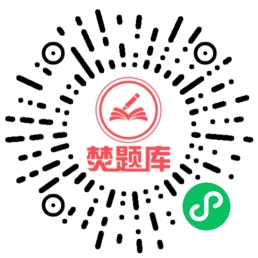2021年CATTI三级笔译冲刺练习题(四)
来源 :中华考试网 2021-10-12
中内画壶《百子图》
Snuff Bottles with Pictures Inside
内画壶是鼻烟壶的一种。内画技艺起源于北京。相传清朝道光年间(1821-1850年),北京有一个破落文人,嗜好鼻烟,无钱购买时就用竹签刮烟壶壁上的烟油代替,久而久之,烟壶壁上一道道纹痕纵横交错,俨然如画,引起了民间艺人的兴趣,他们开始在烟壶的内壁上作画。最早的内画壶,画面简单粗糙。到了光绪年间( 1875-1908年),技艺日趋成熟,烟壶的内壁先经过磨砂,然后再将竹签或毛笔伸入壶内,采用反画技法,把图案画在壶壁上,奇异又雅致。
The art of decorating snuff bottles from the inside originated in Beijing. The story goes that in the Qing Dynasty during the reign of Dao Guang (1821-1850),an impoverished scholar was addicted to snuff. To relieve his cravingfor the powdered tobacco, he scraped his snuff bottle from the inside with abamboo slip. Gradually the marks left on the inner wall of the bottle made apicture, catching the fancy of folk artists. The art of drawing pictures inside snuff bottles was thus created and popularized. In the beginning the pictures were simple and roughly drawn. But by the reign of Guang Xu (1875-1908),the art had been perfected: Artists made delicate drawings with bamboo slips or calligraphy brushes on the bottles' polished inner walls.
扫描下方二维码,进入“每日一练”免费在线测试

我国的内画技艺主要分为京派、冀派、鲁派三大派。工艺美术家王习三是冀派的代表人物。1957年,他向著 名内画艺术家叶晓峰和叶小三学艺,在师承的基础上,兼收各家之长,将传统的勾竹、木笔和勾毛笔结合并用,形成自己的风格。他突 破内画壶只表现传说故事中的人物和花草的局限,创作出《猫蝶图》,描绘一只小猫和落在尾巴上的蝴蝶嬉戏的逗人情景,形象自然,妙趣横生,他还把绘画和书法融为一体,打破了内画艺术的呆板形式。近年来,他又吸收西洋画溪。运用油画技法在内画壶上创作人物肖像,达到相当完美的境界。他的作品赢得国内外的赞赏。内画壶《双猿图》曾获1980年第12届国际烟壶协会优秀奖;《溥仪和婉容肖像》被第13届国际烟壶协会评为最优秀奖;《美国历届总统像》荣获1985年中国工艺美术珍品奖。
Today, snuff-boffle pictures fall into three different categories-the Jing(Beijing), Ji (Hebei) and Lu (Shandong). Wang Xisan's art is representative of the Ji school. In 1957 Wang studied under the famous artists Ye Xiaofeng and Ye Xiaosan. He further developed the art by absorbing the good points of different schools and using the traditional tools, bamboo and wood slips,as well as writing brushes. Finally he created a style of his own. Traditionally,snuff-bottle themes were confined to characters from folktales or flowers and grasses. Wang Xisan made a breakthrough by portraying a kitten playing with a butterfly on its tail, a picture full of wit and humour. Wang Xisan was also the first to use calligraphy on snuff bottle pictures. In recent years his bottle drawings, using techniques borrowed from Western oil painting,have been praised in China and abroad. His picture Two Monkeys was awarded a prize for excellence by the 12th International Snuff Bottle Artists' Associa-tion in 1980. Pu Yi and Wan Rong was appraised as the best work by the 13th Intemational Snuff Bottle Artists' Assoaation and in 1985 American Presidents won recognition as a unique piece of Chinese art.
内画壶《百子图》是王习三的代表作之一。作品以河北南皮县出土的清代水晶壶作胎,壶高八厘米,直径七厘米。他运用彩墨画和油画技法,刻画100个天真活泼的儿童,在天高气爽的秋日,三五成群地聚集在屋前树下,或聚精会神地研究地震仪,或兴致勃勃地下棋,或神采飞扬地探讨诗艺画法,或攀树嬉闹。作品优美生动,细致入微,被国家列为工艺美术佳品珍藏。
A Hundred Children, another masterpiece by Wang Xisan was painted on a bottle 8cm high and 7cm in diameter, which was modeled on a crystal bottle from the Qing Dynasty unearthed in Nanpi County, Hebei Province. By using a combination of Chinese ink styles and western oil, Wang vividly portrayed one hundred innocent and lively children, some clustered under a tree, others studying a seismograph or playing chess, and yet others discussing poems and painting or climbing trees. This snuff bottle has been listed as one of the state's best works of art.
 资料来源中华考试网校老师主讲教材精讲班课程,完整讲义下载进入个人中心>>
资料来源中华考试网校老师主讲教材精讲班课程,完整讲义下载进入个人中心>>


